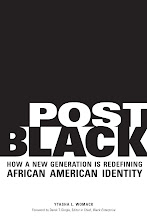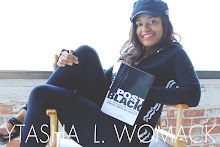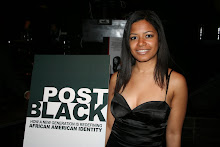Monday, January 18, 2010
Filmmaking: An Interview with "Online" Director Keith Purvis
Keith Purvis is director of the critically acclaimed short film Online. The film will tour festivals this summer.
YLW: How did you get into film?
KP: I was always into film and didn't know it. My father used to watch foreign films. He had an 8 millimeter camera. My brother was into deep horror movies from Italy, etc. I never thought 'oh I'll make movies.' It wasn't until college when I was in design and I was in the Black Student Union and we crashed this alumni event with director George Tillman who suggested that I take a class. So I took a film tech one class. They were showing us films I'd already seen with my dad. I had a rudimentary film education and just didn't know it.
YLW: Black images in media and film have historically been rooted in stereotypes. There's an expectation that films by black filmmakers will be used to address or resolve issues of identity and help level the playing field. What are your thoughts on this matter?
KP: A lot of black filmmakers make movies based on other black movies that aren't necessarily outgrowths of black culture. So you see a stereotype of a stereotype. Black people are drivers of culture. When I make a film I don't think black, white, whatever. I base the film around the characters. I know I have my own experiences and I want to put them in the film. But I painstakingly don't want to make something that is overly clichéd.
YLW: How do you wrestle with identity as a filmmaker?
KP: When you talk about black people, film and identity, I just try to be true to my own experience. If I say, I'm going to make Love Jones, that's bad. I don't think it's a good idea to piggy back off of black movies that have already been made. Some movies aren't authentic to what we go through. Some people make films based off of blaxsploitation movies but most blaxpliotation movies weren't written by black people. So when you imitate Superfly you're not imitating the black identity, you're imitating a character. When do you get to the authenticity when you keep making a copy of a copy of a copy?
YLW: How do you avoid creating works that are stereotypes or cliché?
KP: It's all about story. If you want to address an issue you should write an article. If you don't want to tell a visual story, you shouldn't make a movie. If you're authentic and you're not being cliché, then whatever you identify with will come out in the film.
YLW: Some would argue that a solid message is more important than the entertainment value and aesthetics of the film. How do you balance a sense of responsibility and still create good work?
KP: Orson Wells didn't do Citizen Kane because he wanted to attack an issue. Telling a story is first, everything else is secondary. If you want to be militant or deal with interracial relationships you want to tell a story first. In Malcolm X, Spike Lee addressed issues by telling a story first. But some of his later films don't work as well because he's trying to deal with issues instead of story. I don't think we're going to advance if we want to make movies that advance the race.
YLW: Really? Why?
KP: That's why Tyler Perry is so successful. For his audience the story is fun for them to watch. But while it's fun, they also get a message. If I don't make it an interesting story for them, everything else is going to fail.
What was the griot's reason for being? It wasn't just to impart knowledge. He was also telling stories because the people had nothing to do. Even Jesus spoke in parables. Why? Because if he just dropped science, nobody would listen to that. So he told a story and through that people got an interesting message. So story first, issue second.
I think a lot of young black filmmakers are programmed to say I'm going to make a movie about an issue as opposed to I'm going to make a story. We used to call them PSAs.
There are so many other things that black people deal with. We are part of the larger world. I deal with a lot in a day. You can't tell me the only thing you do in a day is deal with being angry because you're black. You didn't wake up upset about slavery. Even if you did a movie about slavery, the slaves aren't thinking about slavery as a political concept, but rather the day to day, or escaping the day to day, or focusing on when this day is going to end.
YLW: Tell me about Online
KP: The project I did came from a 'what if' scenario. I wanted to shoot a short. I wrote 5 and I wanted to figure out the cheapest and easiest to do and that one was it. It was a 'what if' based on a lot of people on Facebook. It's a how far can this go kind of thing. I wanted to do something really visually interesting. That's how the story developed. And I wondered how can I make this visually interesting. Also, I have an affinity for silent film. So I thought it would be a nice challenge to make a silent film, a throw back to Charlie Chaplin.
YLW: Online is a witty story and it's told very creatively.
KP: Yes, and once again, that was my point . . . to make a story. But I didn't sit down and say I'm going to make a black relationship movie. I said this is an interesting story I want to tell, one based on my experiences and what I've been through. But first and foremost I wanted to tell a visually interesting story.
For more information on Keith Purvis go to www.the-junc-tion.com
Subscribe to:
Post Comments (Atom)




can i work with yall!
ReplyDelete